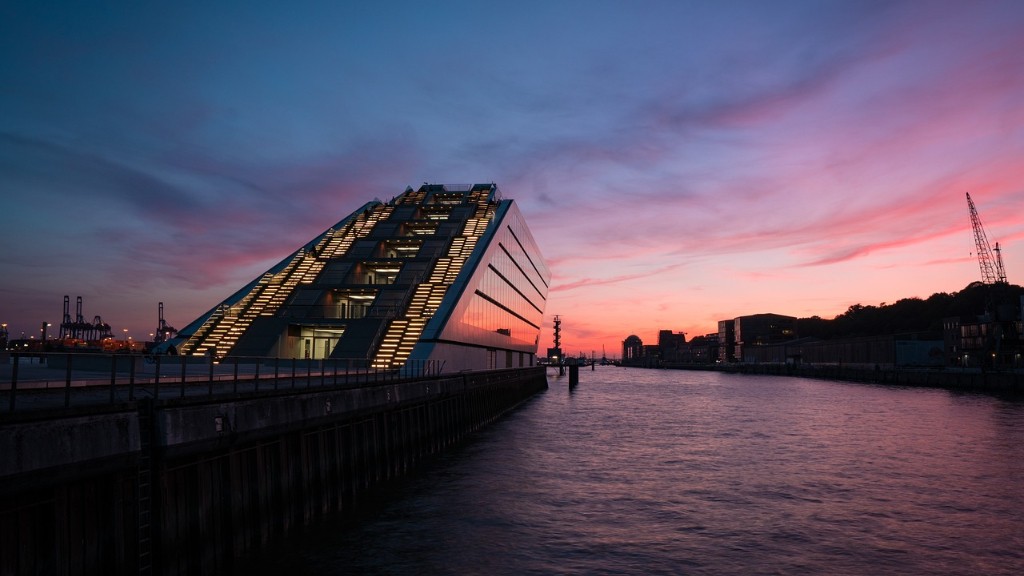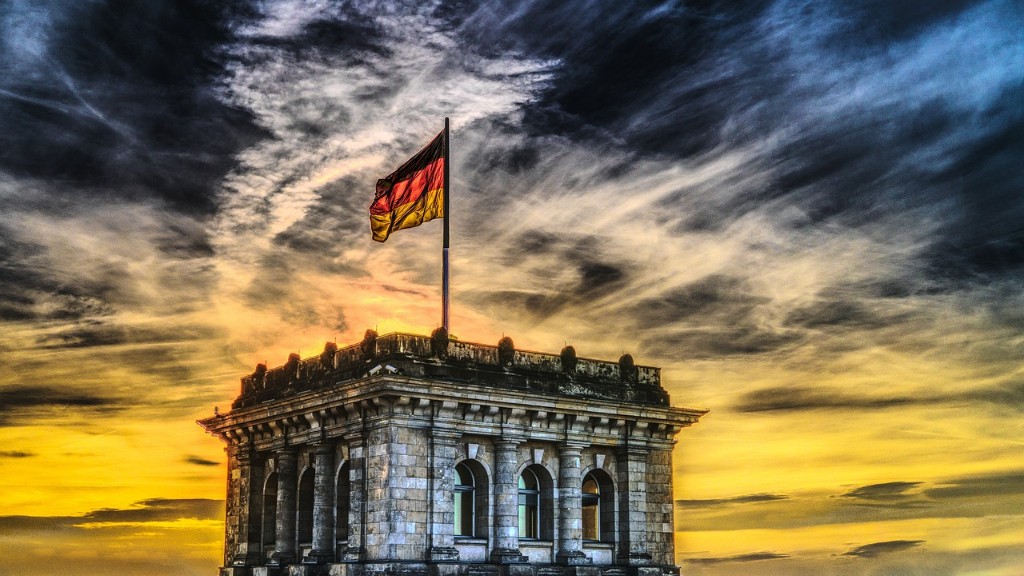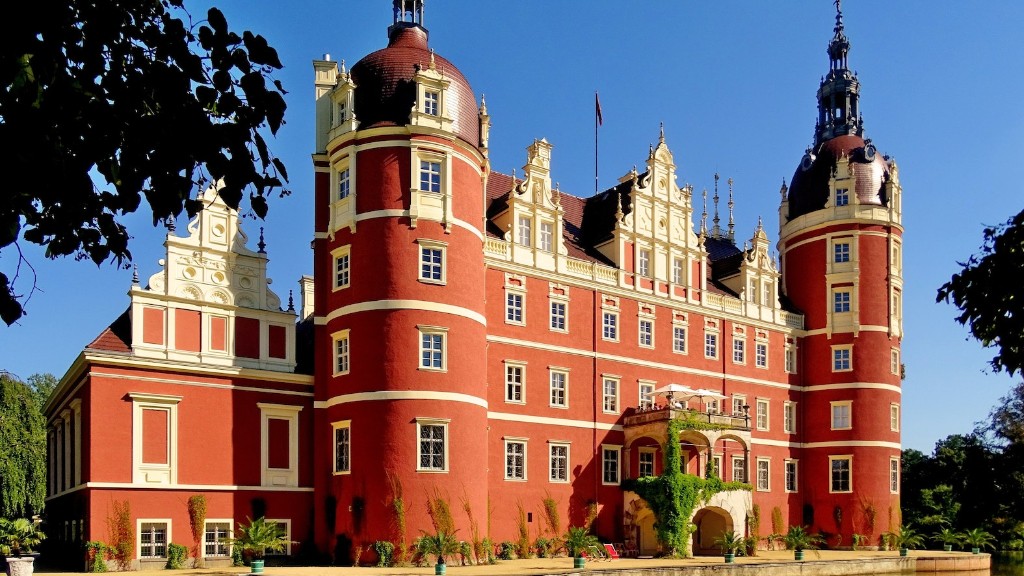Background Information on Munich, Germany
Munich is the capital and largest city in Bavaria, a state located in Germany. It is also Germany’s third-largest city, and its fifth-largest city by population. Munich is the cultural, economic, and political center of Bavaria and has been the capital of Bavaria since 1722. The city is home to the world-famous Oktoberfest celebration, and has a rich history and culture. Visiting Munich, visitors will find museums, theaters, and a wide range of nightlife always buzzing with energy.
The Historic Origin of the Name “Munich”
The exact origin of the name “Munich” is not known for certain. It is thought to derive from the Old High German word “Munichen,” which means “by the monks’ place,” and refers to the city’s location on the bank of the River Isar, an area historically occupied by monks. The city was also known as “Munichum” and “Munichen” during the medieval period.
Munich’s Geography and Climate
Munich is located in the Central European river basin at the edge of the Alps, on the banks of the Isar river. It has an area of 310.43 km2 (119.87 sq mi). Munich experiences a temperate climate, with hot and humid summers and cold, wet winters. In the summer months, high temperatures can exceed 30°C (86°F). It also receives high levels of precipitation, with an average yearly total of about 755.2 mm (29.7 in).
How to Spell “Munich, Germany”
The answer to the question “How do you spell Munich, Germany” is simply Munich. Munich is the standard English spelling for the German city of München.
Language and Culture in Munich
Munich is a major cultural and educational center in Germany. It is also the only German city to be designated a “UNESCO City of Music,” in part due to its vibrant and diverse music scene. The official language of Munich is German. However, many residents also speak English, and some other languages such as French and Italian.
Economy of Munich
Munich has a very diverse economy, ranging from manufacturing to technology and finance. The city is home to several major German and international companies, such as Siemens, BMW, Allianz, and Munich Re. Munich also has a large tourism industry, and the city is a major attraction for both domestic and international visitors.
Why is Munich so Popular?
Munich is a popular destination for tourists because of its rich culture, beautiful architecture, charming streets, and friendly people. The city has a vibrant nightlife, with plenty of bars, clubs, and pubs to explore. It also has a thriving art scene and is home to some of the best museums in Germany. Munich is a city with something for everyone, and it is easy to see why it is so popular.
Munich’s Many Festivals
Munich is home to some of the most iconic festivals in the world. The most famous of these is the Oktoberfest, which takes place every October. This festival is an iconic event that is known worldwide and attracts millions of visitors every year. Other festivals include the Tollwood winter festival, the Summer of Music festival, the Munich Opera Festival, and the Gasteig Summer Open Air Festival.
Transportation in Munich
Munich offers a wide range of public transportation options. The most popular form of public transport is the U-Bahn, an urban metro system. Munich also has an extensive network of buses and trams, as well as an extensive network of bike lanes throughout the city. Additionally, Munich is served by two international airports, Munich Airport and Memmingen Airport.
Living in Munich
Living in Munich is an incredibly attractive option for both domestic and international residents. Munich has a strong economy, a vibrant cultural life, and excellent access to transportation. The city also has a wide range of housing options, from traditional Bavarian apartments to modern high-rises. The cost of living in Munich is among the highest in Germany, but the city is also home to some of the most attractive jobs in the country.
Safety in Munich
Munich is generally a very safe city. The crime rate is relatively low, and the police regularly patrol the streets. The city also has a wide range of safety measures in place, including a robust police presence and strict laws that deter criminal activity.
The Role of Language in Munich
Language plays an important role in Munich. German is, of course, the city’s official language. However, many Munich residents are also fluent in English, and some other languages such as French and Italian. Additionally, Munich is home to many migrant communities, and thus several other languages such as Turkish, Russian, and Arabic are spoken in the city.
Education in Munich
Munich is home to a thriving education sector, with many universities, technical colleges, and vocational schools. The Technical University of Munich is the city’s largest university, and is ranked among the world’s best universities. Other major universities in the city include the Ludwig Maximilian University of Munich, the Munich University of Applied Sciences, and the Free University of Berlin’s Munich campus.
Munich’s Influence on German Culture
Munich is an important center of culture in Germany. The city is home to a wide range of theaters, museums, and musical venues, and its cultural influence is felt throughout the country. The city is also home to the prestigious Kunstakademie, which is considered to be one of the world’s most influential art schools. Munich is known for its traditional Bavarian culture, which is celebrated through such events as the annual Oktoberfest.
Exploring Munich Through Food
Munich is a city renowned for its traditional Bavarian cuisine. Popular dishes include Weisswurst, Weissbier, and pretzels. Additionally, Munich is also home to a wide range of international restaurants, including Indian, Chinese, and Italian eateries. Food is an integral part of Munich’s culture, and one of the best ways to explore the city is to venture out and sample some of its delicious local dishes.
Munich’s Cultural Heritage and Architecture
Munich is home to a rich array of cultural heritage. The city is home to some of the continent’s most famous monuments, such as Marienplatz, St. Peter’s Church, and the Frauenkirche. Munich also has a wide range of distinctive architecture, from the Gothic Old Town Hall, to the modern BMW Welt. Exploring Munich’s cultural heritage and architecture is one of the best ways to experience the city’s rich history and culture.
Munich’s Sporting Culture
Munich has long been a hub of sporting activity in Germany. It is home to some of the country’s most celebrated sports teams, such as Bayern Munich Football Club, German ice hockey team the EHC München, and German basketball team the FC Bayern Munich. The city also hosts the yearly BMW Munich City Marathon and the BMW Open tennis tournament.
Conclusion
Munich is a vibrant and dynamic city with a rich history and culture. It is home to some of the world’s most iconic festivals, a thriving economy, and a wealth of interesting attractions. Munich is the perfect destination for both domestic and international visitors, offering something for everyone.




